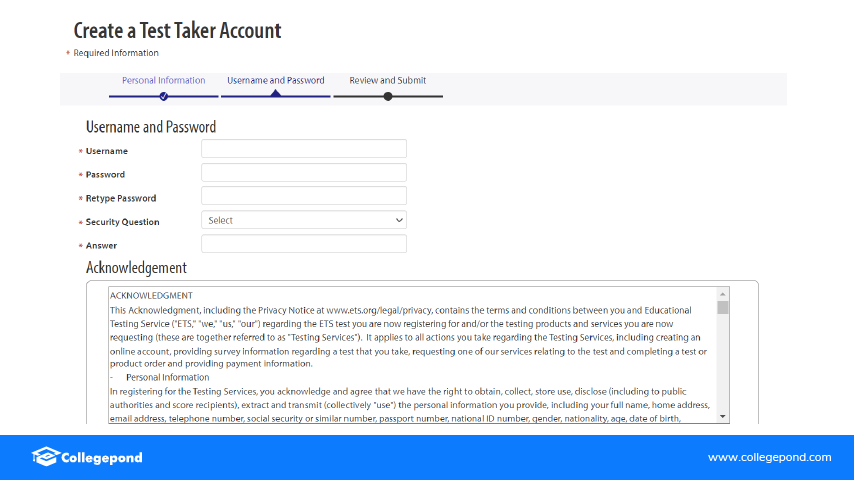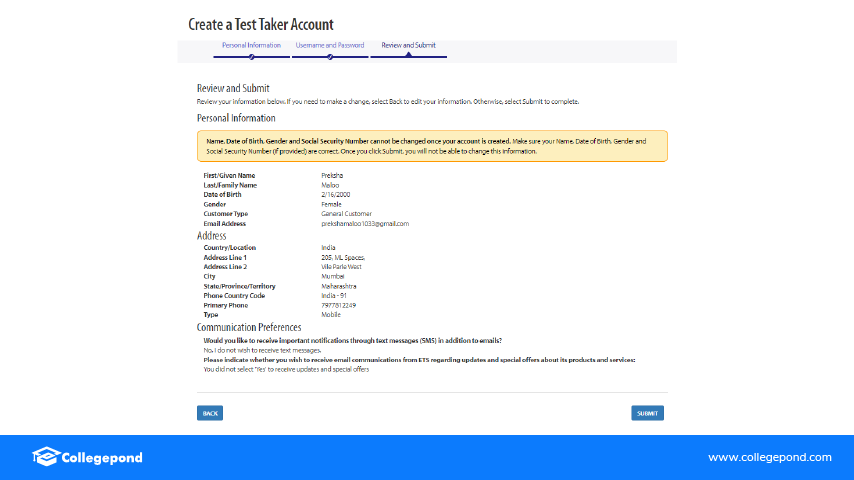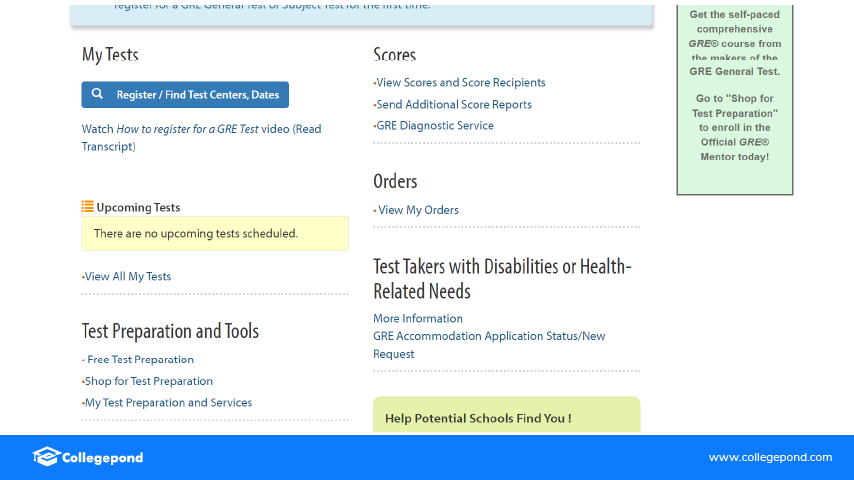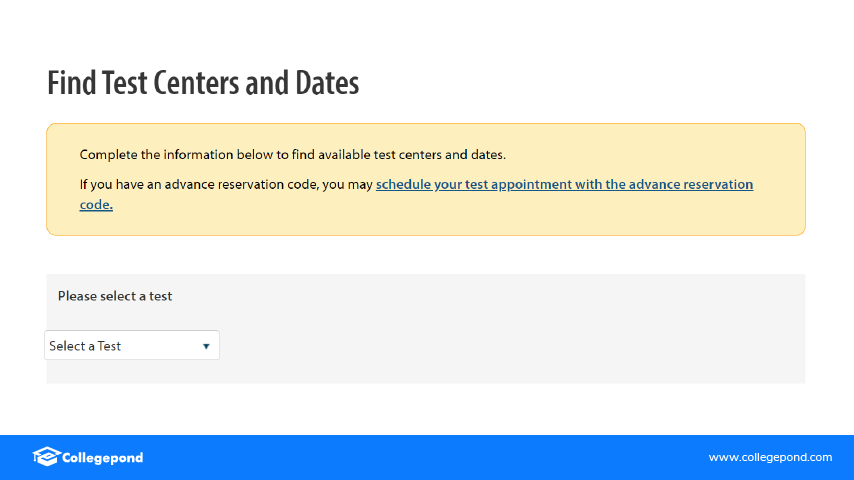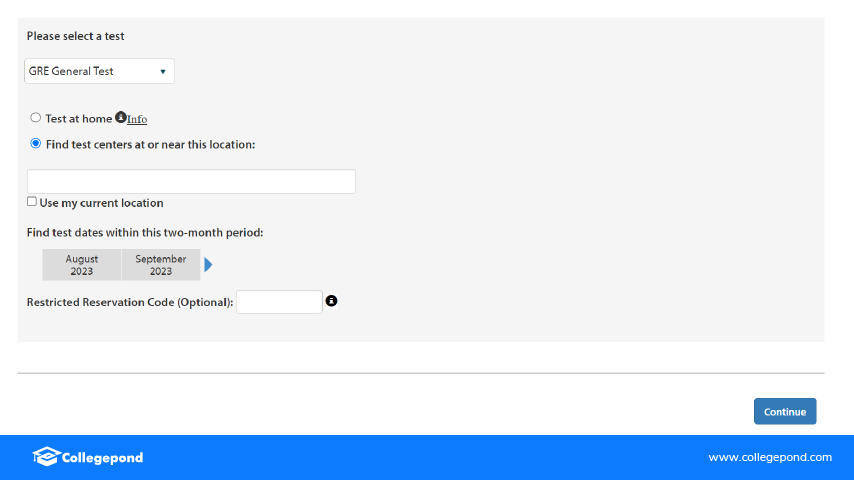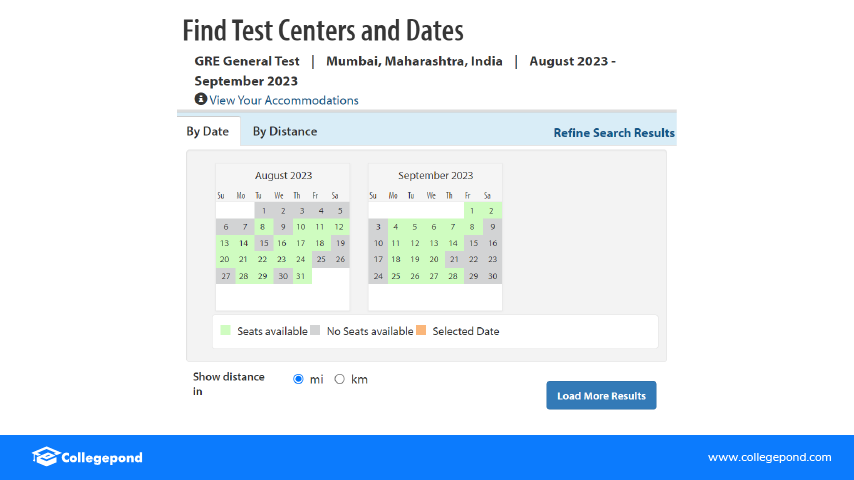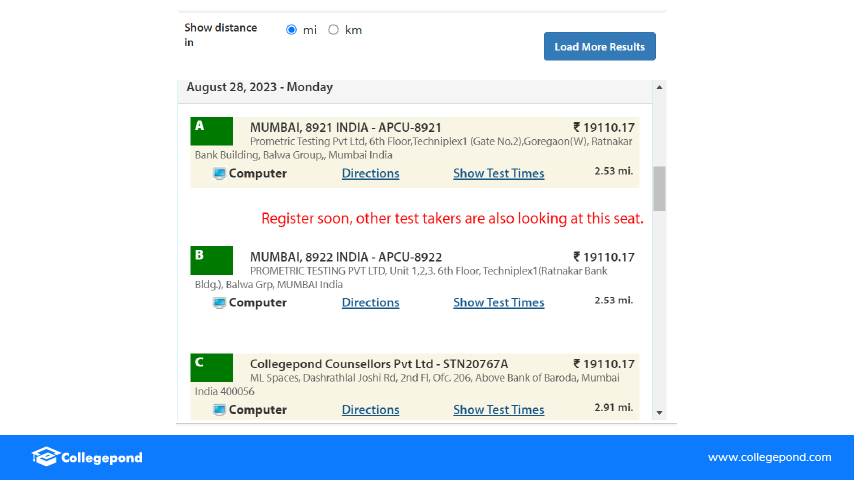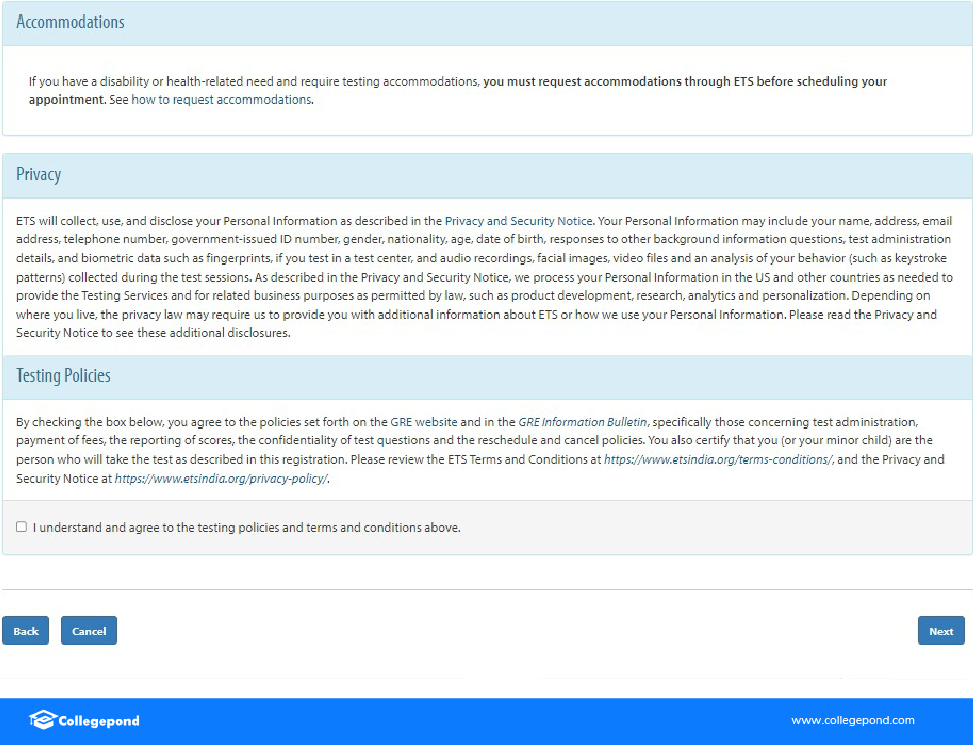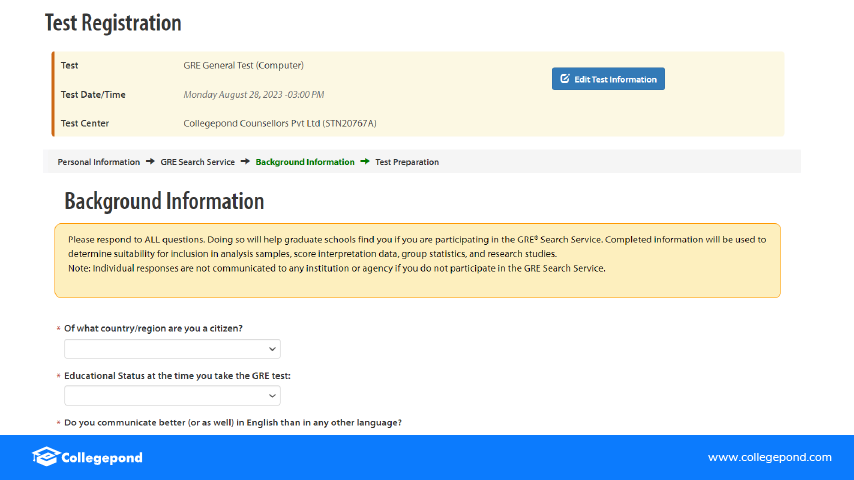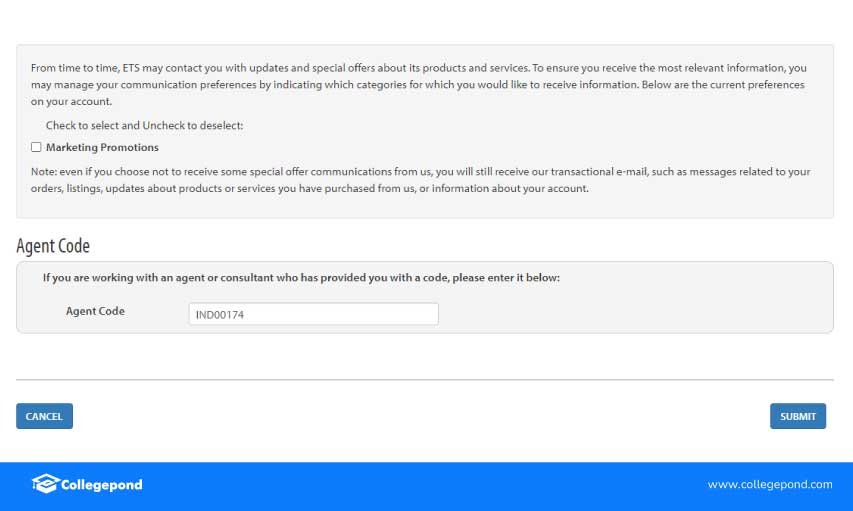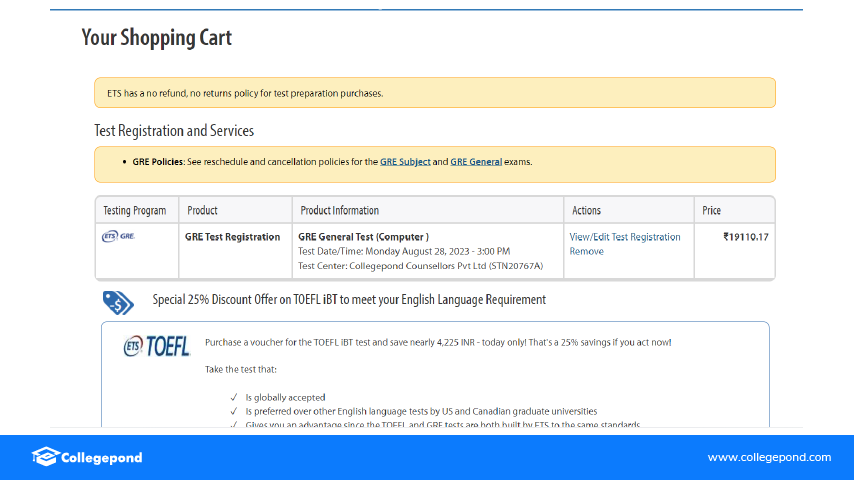|
Location |
Address of the Test Center |
|
|
Bangalore |
Prometric Testing Private Limited
3rd Floor Tower B Prestige Shanti Niketan
Whitefield
ITPL Road
Bangalore South Taluk
Bangalore, India |
IDomain Technologies
No 65, First Floor, 2nd ‘A’ Cross
K.H.B Colony, Koramangla, 5th Block
Behind INFOSYS and TAVANT Technologies Building
Opp to Peas Park
Bangalore, India |
|
New Delhi |
Cyberstation
CPS Global
E-512. 3rd Floor Sector-7
Dwarka (Near - Ramphal Chowk)
New Delhi, India
Council for American
Education
A-260 (3rd Floor)
Defence colony
New Delhi, India |
Merit
A-9, Qutab Institutional Area
Qutab Institutional Area, Near JNU
U.S.O Road, Shaheed Jit Singh Marg
New Delhi, India
Shiksha Overseas
25/33, Lower Ground Floor
East Patel Nagar
New Delhi, India
296, First Floor
Satya Niketan
New Delhi, India |
|
Chennai |
Prometric Testing Private Limited
Unit #8,3rd Floor, Centennial Square,
No 6A, Dr Ambedkar Road, Kodambakkam,
Chennai, India |
Everonn Systems India Limited
15, Jagannathan Road, Nungambakkam
2nd Floor, Romar House
Chennai, India |
|
Mumbai |
Collegepond Counsellors Pvt Ltd
ML Spaces, Dashrathlal Joshi RD 2nd FI, Ofc.
206, Above Bank of Baroda, Mumbai, IND |
|
|
Hyderabad |
Prometric Testing Private Limited
9th Floor, Unit -2, Kapil Towers IT Block
Survey No 115/1, IT Park, Opp ICICI Bank bldg
Nanakramguda, Serilingampaly, Mandal, Gachibowli
Hyderabad, India |
|
|
Kolkata |
Indexpo Corporation
“Binary House” – 2, Circus Market Place, 2nd
Near “Our Lady Queen Of The Missions” School,
(Park Circus 7 point crossing)
Kolkata, India |
|
|
Allahabad |
IPEM
119/25A Mahatama Gandhi Marg
Civil Lines
Allahabad, India |
|
|
Ahmedabad |
Prometric Testing Private Limited
5th Floor, Unit 501, Parshwanath Esquare,
Prahaladnagar Corporate Road,
Prahaladnagar, Satellite
Ahmedabad, India |
|
|
Pune |
GRAD Dreams Education Consulting Pvt Ltd
205 – 206, 2nd Floor, Manish Plaza
Opposite Bhramha Majestic, N.I.B.M Road,
Kondhwa,
Pune, India |
|
|
Trivandrum |
Prometric Testing Private
Limited
C/o Hotel Ruby Arena, Kumarapuram Road
Trivandrum, India |
Prometric Testing Private
Limited
7th Floor, K.E.K Towers
Opp. Trida Complex, Maloor Lane
Vazhuthacaud
Trivandrum, India |
|
Mysore |
Exuberant Technologies Pvt Ltd
#19, Block No.8
Diya Complex
Dr.Rajkumar Road
JSS Layout
Mysore, India |
|
|
Gurgaon |
Prometric Testing Private Limited
Iris Tech Park, 2nd Floor Tower A, Sector 48,
Sohna Road
Gurgaon, India |
ETS Onsite UAS Intl Production Lab
2nd Floor, DLF Infinity Tower A
Sector 25
Gurgaon, India |
|
Coimbatore |
ANCONS International
#15, Sethuram Bldg, G.Flr
Sundaresa Layout
Lane adj IOB Race Course Br.
Trichy Road
Coimbatore, India |
|
|
Chandigarh |
Saint Kabir Public School
Sector 26 – Computer Lab
Chandigarh UT, India |
|















